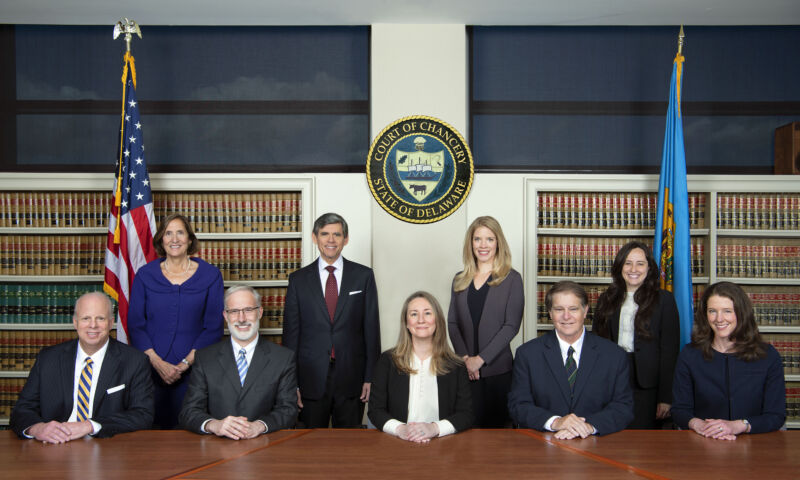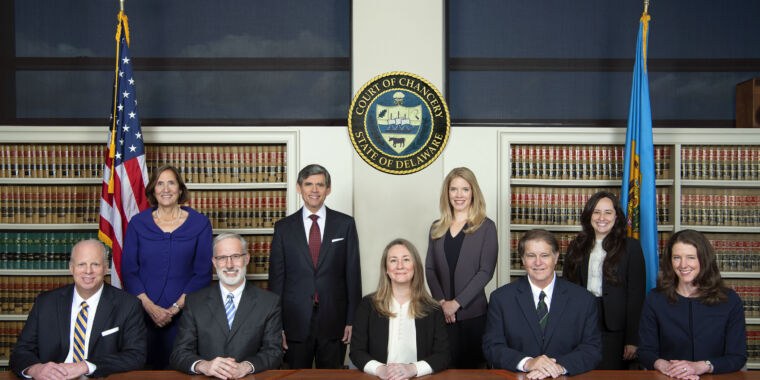
Elon Musk has reason to worry about the Delaware Court of Chancery judge handling Twitter’s lawsuit against him. Kathaleen McCormick, the court’s chancellor, or chief judge, “has a no-nonsense reputation as well as the distinction of being one of the few jurists who has ever ordered a reluctant buyer to close a US corporate merger,” Reuters wrote today.
Specifically, McCormick last year “order[ed] an affiliate of private equity firm Kohlberg & Co LLC to close its $550 million purchase of DecoPac Holding Inc, which makes cake decorating products,” Reuters wrote.
McCormick’s April 2021 ruling in that case, available on the court’s website, centered on a specific performance clause in the purchase contract—similar to the clause that Twitter is citing in its attempt to force Musk to complete his $44 billion purchase. “Chalking up a victory for deal certainty, this post-trial decision resolves all issues in favor of the seller and orders the buyers to close on the purchase agreement,” McCormick wrote in the ruling.
“The buyers lost their appetite for the deal shortly after signing it, as government entities issued stay-at-home orders around the country and DecoPac’s weekly sales declined precipitously… Rather than use reasonable best efforts to work toward a definitive credit agreement, the buyers called their litigation counsel and began evaluating ways to get out of the deal,” McCormick’s ruling noted. “Without input from DecoPac management, they prepared a draconian reforecast of DecoPac’s projected sales based on uninformed (and largely unexplained) assumptions that were inconsistent with real-time sales data.”
The Kohlberg/DecoPac deal was completed less than three weeks after McCormick’s ruling.
Twitter lawsuit cites “seller-friendly” contract
Twitter sued Musk on Tuesday, a few days after the Tesla and SpaceX CEO sent a letter claiming to terminate their merger agreement. “Twitter negotiated for itself a robust right to demand specific performance of the agreement’s terms that encompassed the right to compel defendants to close the deal, and ensured that Musk personally was bound by that provision (among others),” the company’s lawsuit said.
As we’ve written, the merger deal says that if Twitter meets its obligations under the agreement, it “shall be entitled to specific performance or other equitable remedy” to “cause the Equity Investor [Musk] to fund the Equity Financing, or to enforce the Equity Investor’s obligation to fund the Equity Financing directly, and to consummate the Closing.”
The Musk/Twitter deal is “seller-friendly,” has “no financing contingency and no diligence condition,” and “is backed by airtight debt and equity commitments,” Twitter’s complaint said. Musk tried to get out of the deal after stock market declines slashed his net worth, and he “apparently believes that he—unlike every other party subject to Delaware contract law—is free to change his mind, trash the company, disrupt its operations, destroy stockholder value, and walk away,” Twitter told the court.
While Musk claims that Twitter broke the merger deal by not providing all the spam data he requested, Twitter said it provided enough data and that Musk has conjured “an alternative reality in which Twitter had failed to cooperate.” Musk’s demands for spam data also came too late because he made his purchase offer “without seeking any representation from Twitter regarding its estimates of spam or false accounts,” the lawsuit said.
“A serious, no-nonsense judge”
McCormick has served on the Delaware Court of Chancery since 2018 and has been its chancellor since May 2021. She was nominated to the post by Delaware Gov. John Carney.
“She already has a track record of not putting up with some of the worst behavior that we see in these areas when people want to get out of deals,” UC Berkeley law professor Adam Badawi told Reuters. “She is a serious, no-nonsense judge.”
In the Delaware Court of Chancery, cases are “decided by the presiding judge and not a jury, though the judge can call an advisory jury to help consult. The judge’s decision can be appealed to the State Supreme Court, whose decision is final,” The New York Times noted.
Twitter has proposed a four-day trial with a September 19 start date. If the court rules that Musk has to complete the merger and he refuses, the “Delaware Court of Chancery can hold someone in contempt of court, and it has the power to send someone to jail,” NPR wrote.
Financial seizure is another enforcement possibility, as Tesla and SpaceX are both incorporated in Delaware. “Elon Musk owns a lot of stock in Delaware corporations, which may be subject to seizure in Delaware… so, there may be means of compelling him,” NPR was told by Michael Hanrahan, a corporate litigator whose practice is mostly in the Delaware Court of Chancery.








